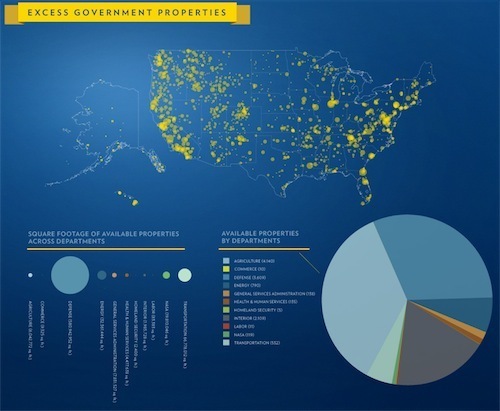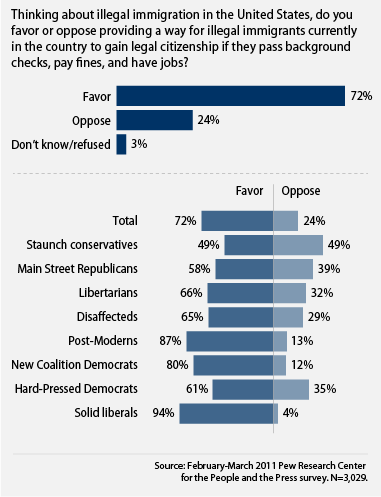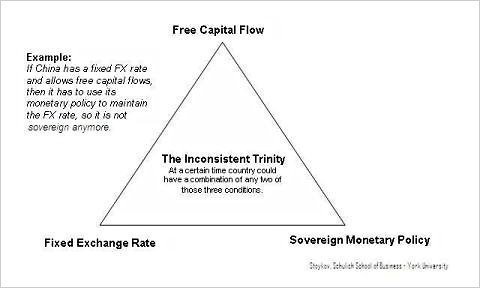Matthew Yglesias's Blog, page 2320
May 9, 2011
At FoxConn's iPhone and iPad Factories, The Beatings Will Continue Until Morale Improves

I'm going to put this in my unlikely to work file:
Factories making sought-after Apple iPads and iPhones in China are forcing staff to sign pledges not to commit suicide, an investigation has revealed. [...] After a spate of suicides last year, managers at the factories ordered new staff to sign pledges that they would not attempt to kill themselves, according to researchers.
In a genuinely unrelated move, I yesterday got my first Android-powered phone after having been an iPhone user since their first week of availability. The big picture in the factories is that Apple's ability to sell iPads appears to be primarily constrained by their ability to get the necessary components at an adequate scale and yet doesn't want to raise prices presumably for reasons of longer-term strategy. The result is incredible stress at the point of production that you have to assume will end with higher Chinese wages soon enough.


'Jumping the Broom' and African-Americans As Niche Audience
By Alyssa Rosenberg
Over the weekend, pursuant to both my thinking about what constitutes a racially progressive movie, and my general weakness for romantic comedies, my friend Tyler and I went to go see Jumping the Broom. As is often the case with these kinds of ensemble movies, the flick works better at the margins than at the center: Paula Patton and Laz Alonso are very attractive people without much in the way of discernable acting talent, but Loretta Devine and Angela Bassett go at their feud with terrific energy, Romeo has grown up cute and funny as a college guy with a taste for older women, particularly the warm and wry Tasha Smith.
The movie's politics are fairly confused. The main character's pledge that she won't sleep with another man until she marries is more an excuse for megachurch pastor T.D. Jakes to give the movie his blessing (he marries Patton and Alonso on-screen) than the product of any real religious conviction. The wealthy family in the movie has secrets, but it's the working-class one that actively causes the most trouble, whether Devine's character is delivering a venomous non-blessing at a wedding rehearsal dinner or forcible unearthing buried family history. There's something uncomfortable about a story that makes some obnoxious members of the talented tenth out to be the victim of a postal clerk who cares about preserving traditional elements of African-American wedding ceremonies.
But honestly, the most revealing thing for me about the movie was the mix of trailers before it played, which included Zoe Saldana's revenge flick Colombiana; Courageous, the latest movie out of Sherwood Pictures, a production company that's actually an outreach effort of Sherwood Baptist Church in Georgia; and Captain America. Which is to say it was a weirdly tonally uneven mix, attempting to appeal to wildly disparate impulses in the Mother's Day crowd that showed up for a Christian-tinted romcom. There's something weird about the fact that 12.6 percent of the American population somehow counts as a niche audience, that we've got enough superhero movies to fill the 15-odd minutes before the latest Marvel flick starts, but not enough movies with African-American stars and ensemble casts to produce a thematically coherent slate of trailers before a movie aimed at black people.


Business Class Media Would Be Media Someone Else Buys On Your Behalf
I've seen a bunch of approving links to Oliver Reichenstein's article advocating a "business class" pricing model for online media. The idea is that the information is free, but paying customers get a superior user experience. It's a nice idea, but I actually question the analogy. Consider the question he started with:
But the flight industry is a tough environment too, and they found ways. So tell me: Why do people fly Business Class? In the end, an airplane brings me to the same place regardless of whether I fly Economy or Business Class and the massive price-increase I pay doesn't compare the difference in value.
Two issues here. One is that despite extensive subsidies and regulatory protections, it's not at all clear that "legacy" airlines actually have found a way. The number of these firms keeps shrinking (witness the United-Continental merger) over time. But more to the point, it seems to me that relatively few business class fliers actually do pay for it. Instead airlines are basically living off principle-agent problems. When lawyers at nice firms travel for work, they fly business class and charge the airfare to the client. Or people fly coach for work, racking up frequent flier miles, and then use the miles to buy upgrades. In those cases, it seems likely that if the individual enjoying the business class seat could pocket the price difference as cash they might. But they can't so they don't. Either way, it's called "business class" in part because of the expectation that you won't actually be paying for it out of pocket.
This model works in media, too. Nobody buys a Bloomberg terminal or a National Journal subscription, instead they work at places that pay the fee. Anyone who can get themselves into that kind of "this counts as a legitimate business expense" is well-positioned to make money. Selling directly to consumers is much harder.


Selling Unneeded Federal Property Has Benefits Beyond The Direct Financial Gain
The White House is today announcing a plan to sell off a whole bunch of no-longer-used federal buildings.

Given the austerity mood in the press, the administration is emphasizing the monetary savings involved in this, but that's actually just a small piece of the potential gains. At the end of the day, by far the biggest problem with having the federal government own a warehouse it's not using is simply that the warehouse isn't getting used. An old warehouse could be converted into condos or a police station or a rock club, but those aren't the kind of things the federal government runs. A private individual might just lease the property out, but again the federal government's not a commercial real estate manager. Selling the land and the structures is the best way to get the real resources back in circulation. And as always, real resources matter a lot more than budget line items. The government can conjure up more money any time it wants. The real resources available to the country are what's in limited supply, and the real policy upside is in putting them to better use not obtaining more dollars.


Pakistan Leaks Name of Islamabad CIA Station Chief As Relations Take A Further Tumble
It seems that someone in the Pakistani intelligence services has decided to leak the name of the CIA station chief in that country, part of a whole downward spiral of relations explained by Jane Perlez:
The publication of the name demonstrated the tilt toward a near adversarial relationship between the C.I.A. and the Pakistani spy agency, the Inter Services Intelligence Directorate, or ISI, since the Bin Laden raid. It appeared to be intended to show the leverage the Pakistanis retain over American interests in the country, both sides said.
In an address before Parliament on Monday, Prime Minister Yousaf Gilani made clear that Pakistani officials at the highest levels accepted little responsibility for the fact that Bin Laden was able to hide in their country for years.
I have no idea how we compare to other countries in this regard, but I do think America has a terrible tendency to let the tail wag the dog in these patron-client relationships. The reasons have to do, I think, with the fact that "the US government" isn't actually a unitary actor and there are important elements of the government that have a stake in each particular patron-client dynamic. But it's difficult for me to understand why an ally that's not trustworthy enough to share intelligence with should be receiving large sums of military aid.


Subsidies Work Better Than Regulatory Prohibitions

(cc photo by jonnamckone)
Natalie Avery has a very good post about the contrast between "voluntary agreements" to restrict liquor licenses and intervention to create a "temporium" pop-up shop in Mount Pleasant. It's a parochial neighborhood concern, but I urge you to read it since it's a nice micro-level illustration of a general phenomenon—if you want something to happen, it's much more effective to subsidize it directly than to try to call it into existence through regulatory prohibitions.
Throughout urban America, the market wants to generate lots of bars, restaurants, and other entertainment venues since that's the comparative advantage of an urban location. The market also tends to prefer chain retailers to independently owned ones, since there are economies of scale lower costs of capital, etc. But even though this is what people vote for with their wallets, people generally say that they want more independently owned neighborhood-serving retail. Which is fine, but regulatory restrictions on the supply of restaurants and chain stores is a pretty inefficient way to bring this about. The correct way to ensure the existence of more stores of a particular kind is to actually go out and see how much direct subsidy it would take to make it worth someone's while to open one. Then you can evaluate the tradeoff and decide what you want to do. My suspicion is that oftentimes we don't do that because the voters don't, in fact, actually want to pay the price. Which is fine. But people shouldn't trick themselves into thinking that trying to create subsidies via regulatory restrictions is "free," it's actually quite costly—almost invariably more costly than ponying up the cash would be.


The Public Supports A Path To Citizenship For Employed Undocumented Immigrants
"Illegal immigration" is obviously a problem in any number of ways. But part of what that means is that there are different ways to construe what exactly the problem is. The trajectory of policy since the collapse of immigration reform legislation in 2007 has been to construe it as a problem of insufficient deportations. Another—better—way would be to construe it as a shortfall of legal avenues for people to come to the United States to do legal work in exchange for money. And as Ruy Teixeira argues the evidence suggests fairly widespread support for this reading:

Undocumented workers are easy for opportunistic politicians to attack and demonize since they're violating the law, and people don't like that. But by the same token, politicians who want to resolve US-Mexico migration in a humane way continue to have ample space to craft a solution oriented around the idea that people that people who want to work in the United States should be permitted to do so legally.


Is the Smithsonian Video Games Exhibit a Waste of Space?
By Alyssa Rosenberg
Kriston Capps makes a provocative, and I think in some ways convincing, argument against the Smithsonian American Art Museum's upcoming Art of Video Games exhibit. I don't disagree that it's an important curatorial mission to do more shows that focus on African-American art, or that gallery space is a precious resource (especially given its ability to confer legitimacy and prestige on an artist or a form of art), or even that the method of selecting the games included in the exhibition was not exactly rigorous. He writes:
Video games don't need a museum half as much as the Smithsonian thinks it needs video games.
For the American Art Museum, "The Art of Video Games" will serve as one of those golden bricks from Super Mario Bros. that keeps pumping out coins. For the hordes of tourist families that this show draws, it will mean the same quest for the Triforce, the same renegade FOXHOUND nuclear threat, the same super monkey balls—but at a museum, which means education and (maybe) larger screens. If there is any scholarship to the exhibition, it takes a distinctly player-two role to the show's family draw.
This, I think, is where we disagree. Frankly, if I was on the staff of a publicly-funded cultural institution staring down the existing political climate, and the role government support for the arts has the potential to play in the 2012 elections, I would want to enlist a passionate constituency of nerds and future nerds. Museum attendance has been up the last two years, but institutions still report that they're facing significant economic strain. What they need is not just an attendance bump, but to convince new segments of the population that they're deeply invested in the continued existence of museums. If talking families through the technology and technique of the games they play regularly as a way to get kids interested in art, that seems like a win, though it's entirely dependent on how well the exhibit comes together. The Smithsonian may be overcompensating to reach these end goals, and the result may be a bad exhibit, but I don't think the sense that the Smithsonian needs video games—and by extension, needs new, committed audiences—is wrong.


Bretton Woods And The Impossible Trinity
Another link to Paul Krugman, this time on the impossible trinity of independent monetary policy, free flow of capital, and fixed exchange rates noting that foreigners complaining about the fall in the value of the dollar are asking us to do something crazy:

All those accusation of hooliganism, currency wars etc. are in effect demands that the trilemma be resolved by having America give up having an independent monetary policy — basically, that the Fed give up on trying to stabilize the US economy so that emerging markets aren't faced with the uncomfortable tradeoff between massive appreciation and imported inflation. But this shouldn't and won't happen.
This is one reason why I've grown impatient with nostalgia for the good old days of the Bretton-Woods system.This system, which really was working great in its heyday, essentially involved the United States playing precisely the role that we now reject. The dollar was pegged to gold, other currencies were pegged to the dollar, foreign countries could change the dollar price of their currencies, and we couldn't reset the value of the dollar. This worked fine as a means of facilitating catch-up growth in Japan and Western Europe but that growth make it impossible to sustain, so it wasn't sustained and there's no practical method of bringing it back.


Life, Death, and The Government

Alyssa has a piece in the new Washington Monthly about NCIS that observe that government is all over our TV screens:
The phenomenal success of NCIS is part of a little-noticed fact about contemporary American culture. Though the rise of the Tea Party supposedly means that Americans these days hate government, they can't seem to stop watching shows about government.
Week to week, nearly half of today's highest-rated network TV shows are set in government agencies, be they federal (NCIS, Bones) state (The Mentalist), or local (Law & Order, CSI), or in quasi-public institutions like hospitals (House, Grey's Anatomy) and private law firms that deal directly with the government (The Good Wife). Even Glee is set in a public high school. On cable, the USA Network has built its brand almost entirely around quirky shows about public servants and their sidekicks, ranging from Burn Notice, which follows a CIA agent washed up in Miami, to In Plain Sight, about U.S. marshals who work in the witness-protection program.
As an entertainment industry phenomenon, I don't think this is too hard to understand. We like our shows to be about life and death situations—illness, public safety—to provide the drama needed to drive the narrative forward. And as it happens, around the world these kind of situations are handled by public or quasi-public institutions. What's a little strange, I think, is how little consciousness of this fact feeds back into our political debates here in Washington. People talk about "government spending" as if it were some alien force that's arisen for inexplicable reasons. In fact, it's largely arisen to deal with the kind of problems that make for interesting television—life and death situations in which we hope to find things done by hero-type characters and the pursuit of narrow self-interest and profit would be considered inappropriate.


Matthew Yglesias's Blog
- Matthew Yglesias's profile
- 72 followers




